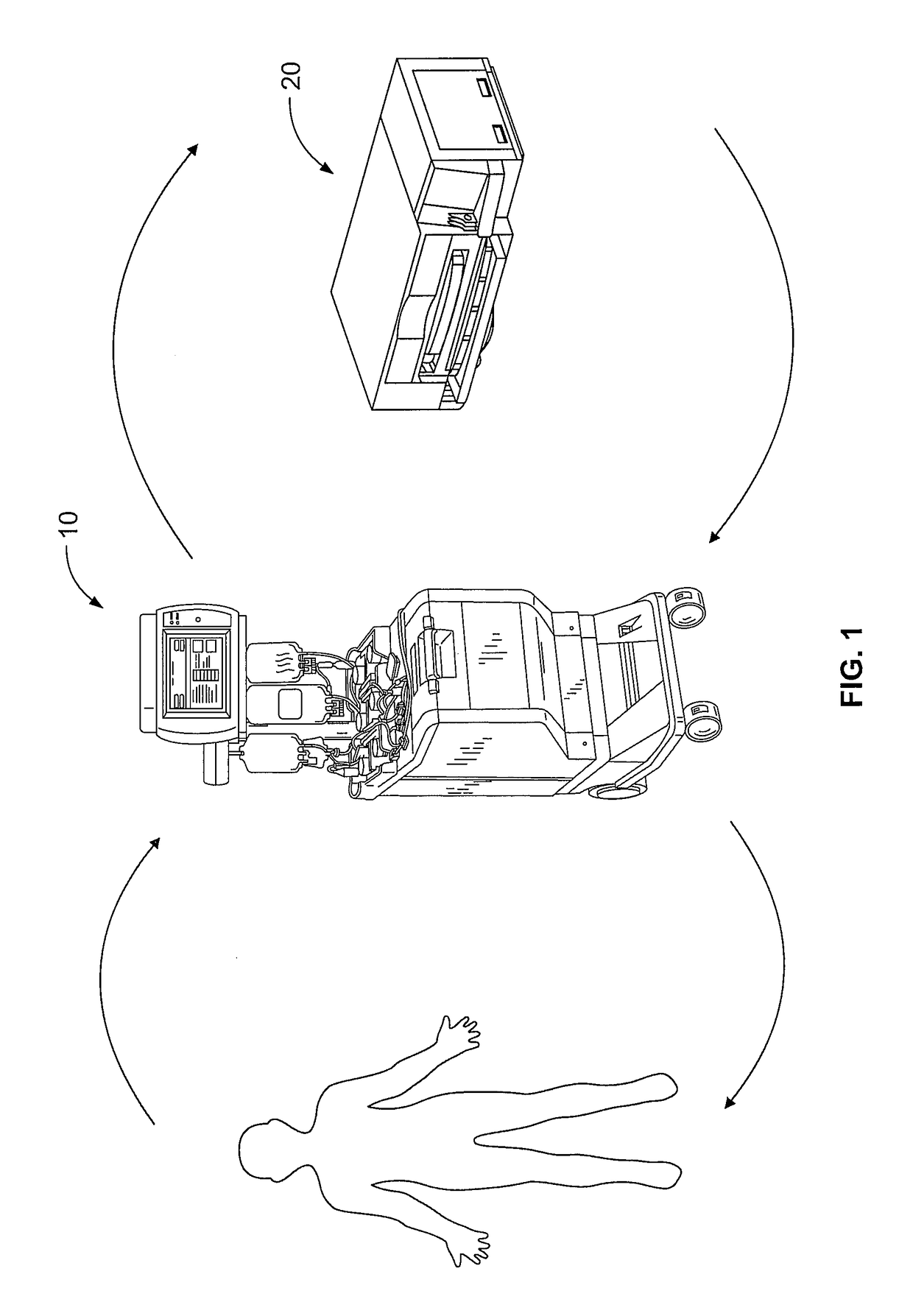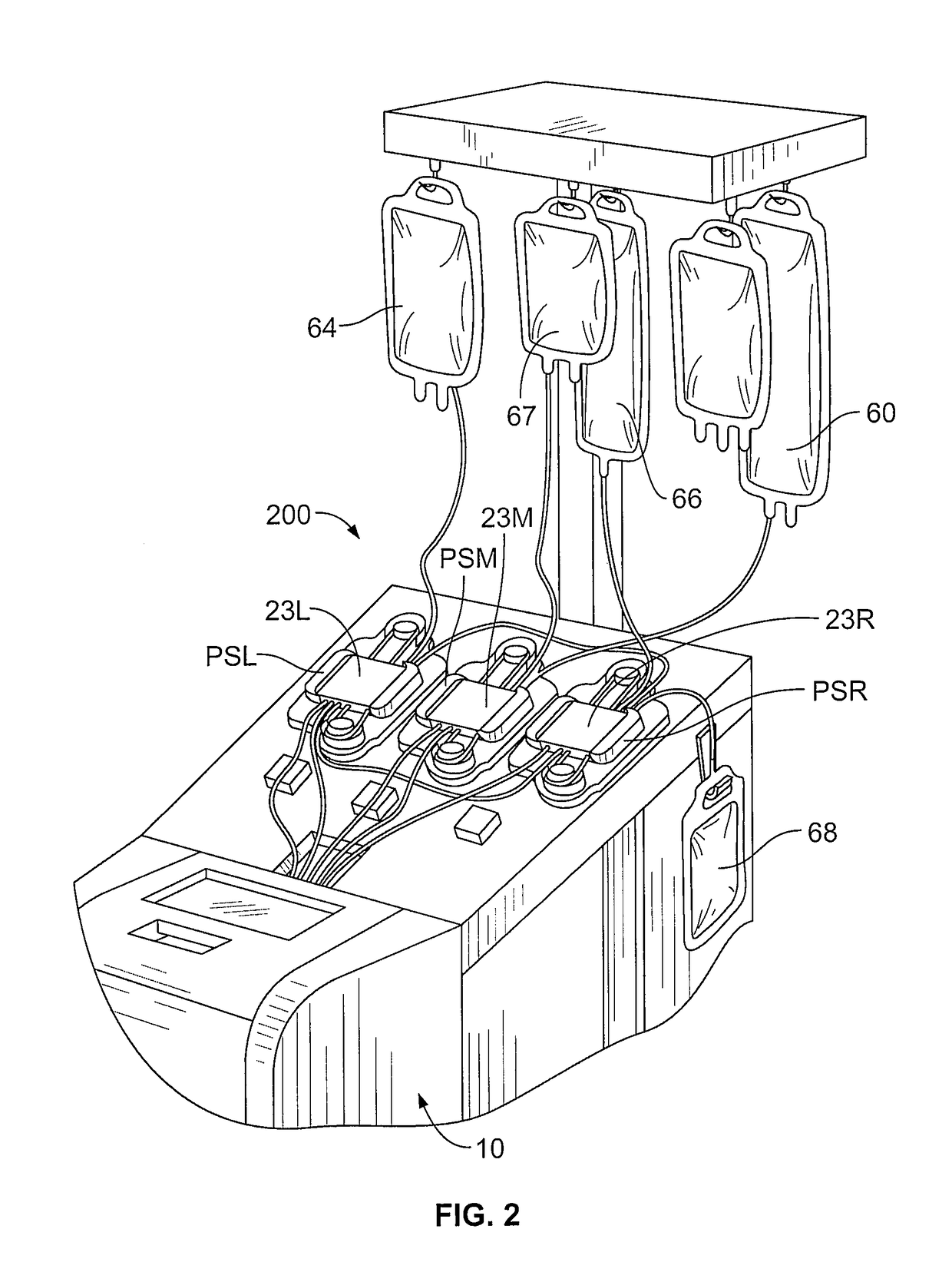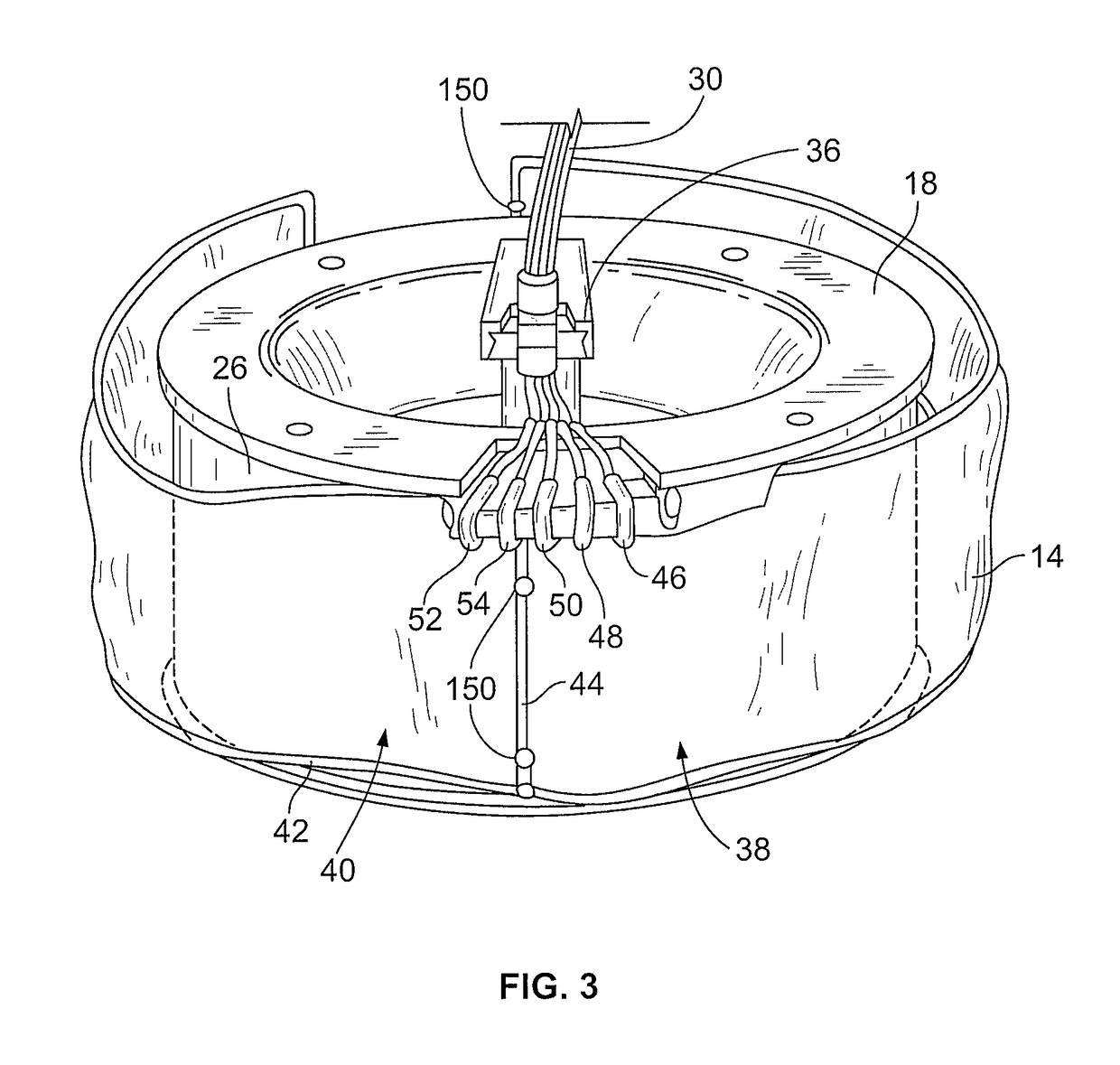Methods for treating a suspension of mononuclear cells to facilitate extracorporeal photopheresis
a mononuclear cell and photopheresis technology, applied in the direction of haemofiltration, suction devices, other medical devices, etc., can solve the problems of not fully accounting for the uv light being absorbed by the red cells and plasma, and the delivery of the proper dose of light energy
- Summary
- Abstract
- Description
- Claims
- Application Information
AI Technical Summary
Benefits of technology
Problems solved by technology
Method used
Image
Examples
Embodiment Construction
[0021]A more detailed description of the systems and methods in accordance with the present disclosure is set forth below. It should be understood that the description below of specific devices and methods is intended to be exemplary, and not exhaustive of all possible variations or applications. Thus, the scope of the disclosure is not intended to be limiting, and should be understood to encompass variations or embodiments that would occur to persons of ordinary skill.
[0022]A method for performing a photopheresis procedure is described below. The method generally comprises collecting MNCs in a suspension that includes a quantity of residual red blood cells and plasma, and lysing (i.e., disintegrating) the red blood cells in the solution, preferably by combining the suspension with a solution that causes lysis. The lysing does not substantially adversely affect the viability of the mononuclear cells in the suspension. In one example, the solution for causing lysis of the red blood c...
PUM
 Login to View More
Login to View More Abstract
Description
Claims
Application Information
 Login to View More
Login to View More - R&D
- Intellectual Property
- Life Sciences
- Materials
- Tech Scout
- Unparalleled Data Quality
- Higher Quality Content
- 60% Fewer Hallucinations
Browse by: Latest US Patents, China's latest patents, Technical Efficacy Thesaurus, Application Domain, Technology Topic, Popular Technical Reports.
© 2025 PatSnap. All rights reserved.Legal|Privacy policy|Modern Slavery Act Transparency Statement|Sitemap|About US| Contact US: help@patsnap.com



